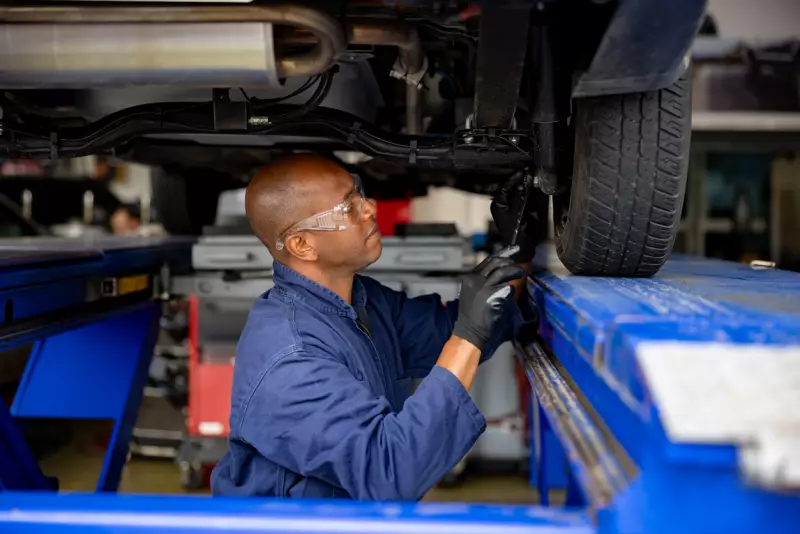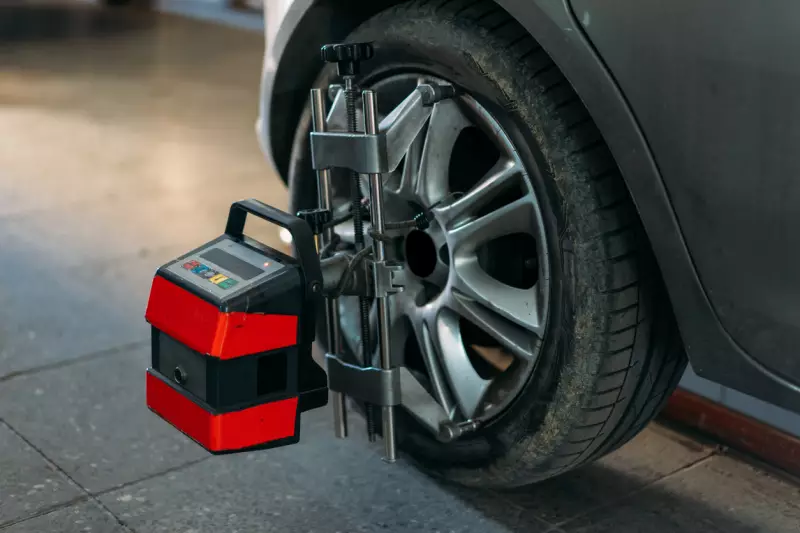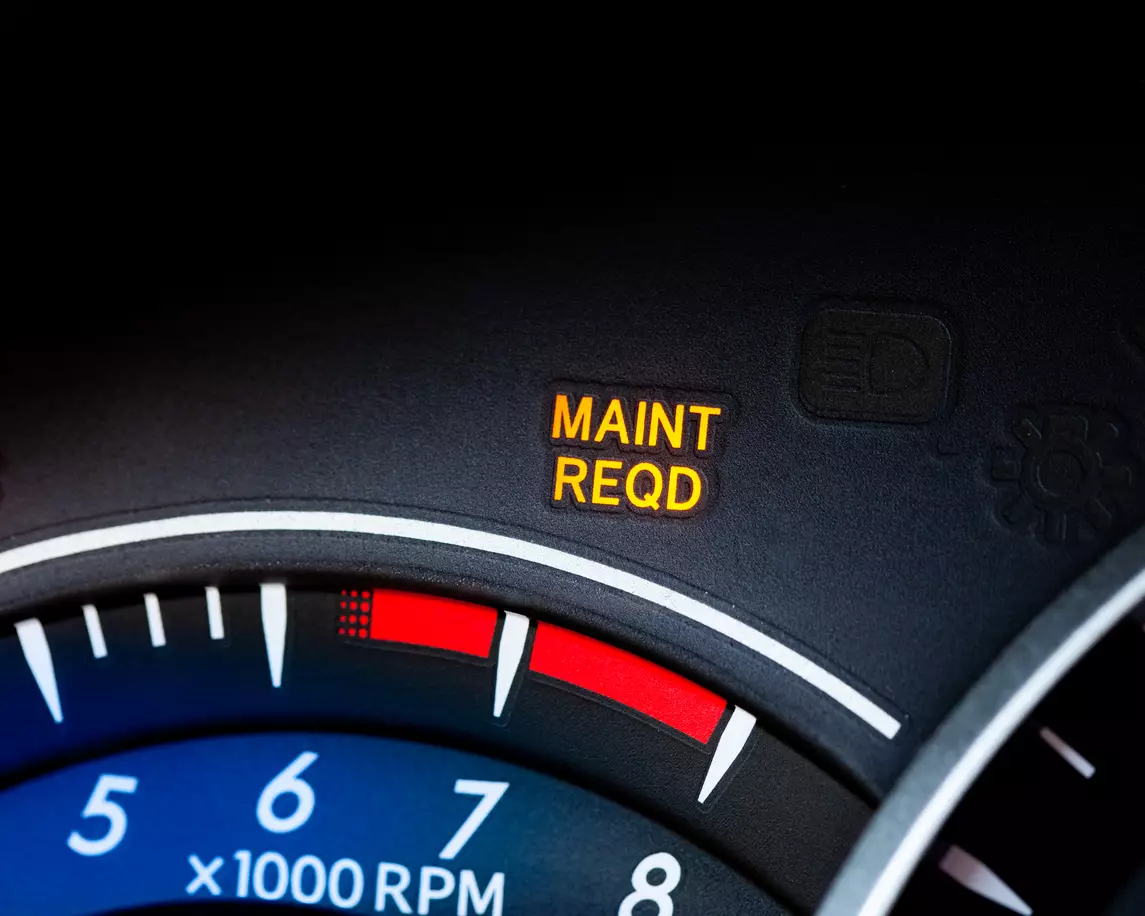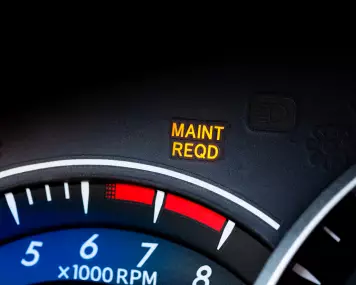When a car shakes while driving, the shaking may be caused by many reasons and is a common experience among many vehicle owners. One thing is certain: you will not likely have a good time or be comfortable in such a vehicle. Besides being uncomfortable, not quickly identifying the cause of a car shaking while driving and promptly addressing the excess vibration can impact your control and handling of the vehicle, making it unsafe to drive. In addition, driving a shaking car for a long time without addressing the underlying issues can reduce the vehicle’s life span.
Why Is My Car Shaking?
There are many reasons your car shakes, either while braking or accelerating. Car shaking can occur over certain speeds, and in other instances, it happens all the time, even when a vehicle is idling. The potential culprits for your car shaking while driving range from engine issues to transmission problems, brake issues, tire issues, damaged suspension systems, and steering problems. These are discussed in more detail below.
Tire Issues
When your tire is old, out of balance and alignment, or unevenly worn down, you are bound to feel your car shaking while driving it. Generally, high-grade tires can last between three and five years from when they hit the road. However, they tend to have a slight vibration when old and worn. Similarly, tires that are out of balance, especially the front tires, tend to wear unevenly, causing misalignment and, ultimately, car shaking while operating a vehicle. Getting regular rotations of your tires and making sure they have the right pressure at all times can prevent them from wearing out unevenly. Furthermore, out-of-shape tires (tires irregularly worn around the edge while the middle is intact) tend to bounce on the road, causing a car to shake or vibrate.
Brake Problems
Worn-out brake pads, damaged braking systems, and warped brake rotors can cause your vehicle to shake while driving. If your car has any of these issues, you will feel your car shaking when you step on the brakes, especially when you need to make a sudden stop. It is common to notice your brake pedal throbbing or your steering wheel shaking from side to side. You may also feel an extreme vibration and sound in front of your vehicle. To prevent car shaking issues due to brake problems, get your brakes inspected and fixed once you feel a vibration while braking. Regular inspection of your car braking system is also recommended.
Engine Problems
The engine compartment in your car can shake if it is not getting adequate spark, air, or fuel. In any of these instances, the vehicle is likely to jolt during certain speed ranges or when you accelerate, making your car vibrate or shake while driving. Generally, a clogged or dirty engine air filter can shorten the amount of fuel and/or oxygen passing through a vehicle engine. When this happens, the engine is not likely to run smoothly, leading to unwanted car shaking. Similarly, worn spark plugs and faulty connections can cause misfiring and make your car shake while driving or idling. Regular engine maintenance and paying rapt attention to check engine light warnings on your dashboard can help prevent this situation.
Suspension and Steering Issues

Power steering problems, loose steering components, and a worn suspension system can cause your vehicle to vibrate while driving. Generally, wear and tear from entering potholes can stress a vehicle suspension system. This sometimes damages or breaks some components, causing vibrations when driving. Also, an out-of-alignment suspension can cause a vehicle to start shaking suddenly. If the car shaking occurs when you turn your steering, it is likely due to lower power steering fluid. The fluid is meant to lubricate the steering system, and without it, some components may rub against one another, causing an unwanted vibration. Car shaking due to suspension and steering problems can be avoided by regularly inspecting your steering and suspension systems and replacing worn parts, particularly when you hit something or get into big potholes.
Transmission Issues
There is a high chance your car will shake while driving if the vehicle has transmission issues. You will typically feel the instability and vibrations when you change gears. In fact, a car's shaking and grinding can indicate severe problems with the vehicle's transmission and should be fixed promptly. Sometimes, the shaking can be caused by low automatic transmission fluid, which can be resolved by adding new transmission fluid. In other instances, the issue may be worn-out gear mounts or problems with torque converters. When a car shakes due to transmission problems, and the shaking comes along with the check engine light, it is best to see your mechanic.
Why Does My Car Shake at High Speeds?
Tire or wheel imbalance and axle issues are the most common culprits of a car shaking at high speeds. In cases where the vibration is only felt in the car's front end, the ball joints may be responsible for the shaking. If you already have your wheels aligned but the vehicle shakes at higher speeds, your tie rod ends may be worn out and need replacing. Where the vibration is accompanied by a clunking sound from the front or a drifting steering wheel, the culprit is likely both the tie rod ends and ball joints. The vibration you feel when driving at higher speeds differs from the general driving shaking because it is often accompanied by either a wandering steering wheel or a grinding sound.
Wheel Balancing Issues

Imbalanced wheels can cause car shaking at high speeds. Even at between 50mph and 70mph, slightly misaligned tires are likely to make a vehicle vibrate, which you will also feel in your steering wheel. Similarly, a bent wheel can make your vehicle vibrate at high speed. Consider getting a regular wheel balancing and rotation done, and where required, change the wheels to prevent undue vibrations that can affect your car's longevity.
Driveshaft and Axle Issues
Bad drive shafts and axles can cause a car to shake at high speeds. For instance, the drive shaft transfers the power from the transmission to the rear or front wheels. So, if it becomes bent or damaged, you will definitely feel your car shaking at high speeds. Similarly, when a vehicle's axle gets bent, probably caused by driving over a terrible pothole, the car will vibrate when it travels at high speed. The only way to resolve the issue of a car shaking at high speeds due to a bad axle or driveshaft is to replace the damaged part. However, as a preventive measure, regular inspection of these cars to know their status is recommended, particularly in older vehicles.
The Best You Can Do When Your Car Shakes
Car shaking or vibration is a serious issue that should not be neglected, especially for safety reasons. Regular inspections and maintenance of major parts or components of your vehicle that can potentially cause those annoying vibrations cannot be overemphasized. Where the shaking becomes persistent despite regular maintenance of relevant parts, you know it is time to visit a professional mechanic to fix the problems.




















